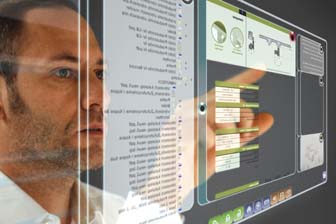You can master coding through one or more of dozens of online courses and tutorials, some of which are available for free. After you’ve learned all the programming languages and other skills you need to be a solid coder, it can help your career to heed the advice from an article on appendTo.com about how to prepare yourself and your resume to get hired.

1.) Keep Practicing
Don’t stop doing personal projects while you wait to get a job as a developer. You’ll have something to add to your portfolio when employers call. You also continue to learn new skills and how to solve problems coders face when you are continually working on a personal project. The constant practice may even help you to identify where your skills are lacking, which can show you where you need to get more training to get a good job. Also, share your project with other developers who can critique your work and from whom you can get good ideas. Peruse their projects for ideas about how to make your own work even better.
2.) Work with Others
Find a friend or two you can code with. This will increase your interpersonal and communication skills. Employers want developers who can work on a larger team and work on big projects with other people. Soft skills are just as important as your coding skills. This also helps you build your leadership skills and provides you with the opportunity to calmly receive constructive feedback.
3.) Share Your Work
As mentioned in the first tip, sharing your work with the open source communities out there is a great way to learn from other people. Some places you can do that include GitHub, which is a management and code collaboration tool, as well as Stack Overflow, which is “a Q&A site for developers,” according to TheMuse.com. An added benefit of contributing to these types of communities is that you may get hints about who is hiring. Recruiters and managers peruse these sites to find coders who are really enthusiastic about coding. The more you share your work and respond to others in a friendly way, the better chance you have of getting noticed.
4.) See Who and What Else is Out There
Narrow down your interest fields, and learn about who is doing what in different areas of technology by going to hackathons, conferences, and Meetups. Networking with other people in the field is a great way to learn what is happening in coding and to learn about new companies, interesting people, and to potentially hear about who is hiring. Follow tech companies and organizations, as well as individual developers, on Twitter, and read sites like TechCrunch, suggests TheMuse.com.
5.) Concentrate on Your Interests
After you’ve figured out what interests you, learn as much as you can about it. Read articles, blogs, tweets, Facebook posts, and anything else you can get your hands and eyes on about the field. The more you learn about it, the more conversant you are when you interview with a manager from a company or organization in that field. Additionally, do some freelance projects in the field to see if you truly are as interested in it as you thought you were originally. You’ll demonstrate a keen and genuine interest in the field, and that is something employers want to see in their job candidates.




